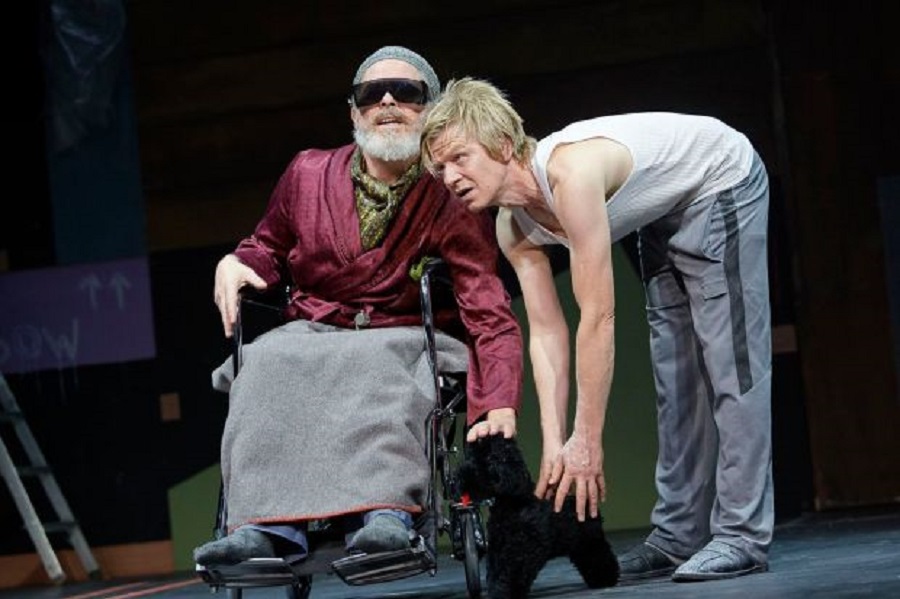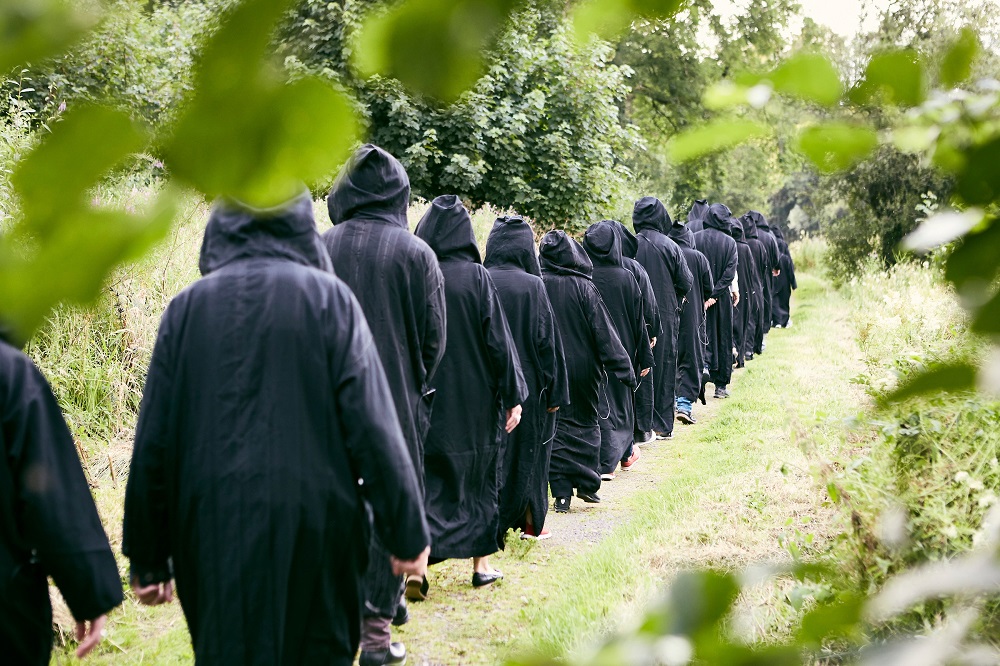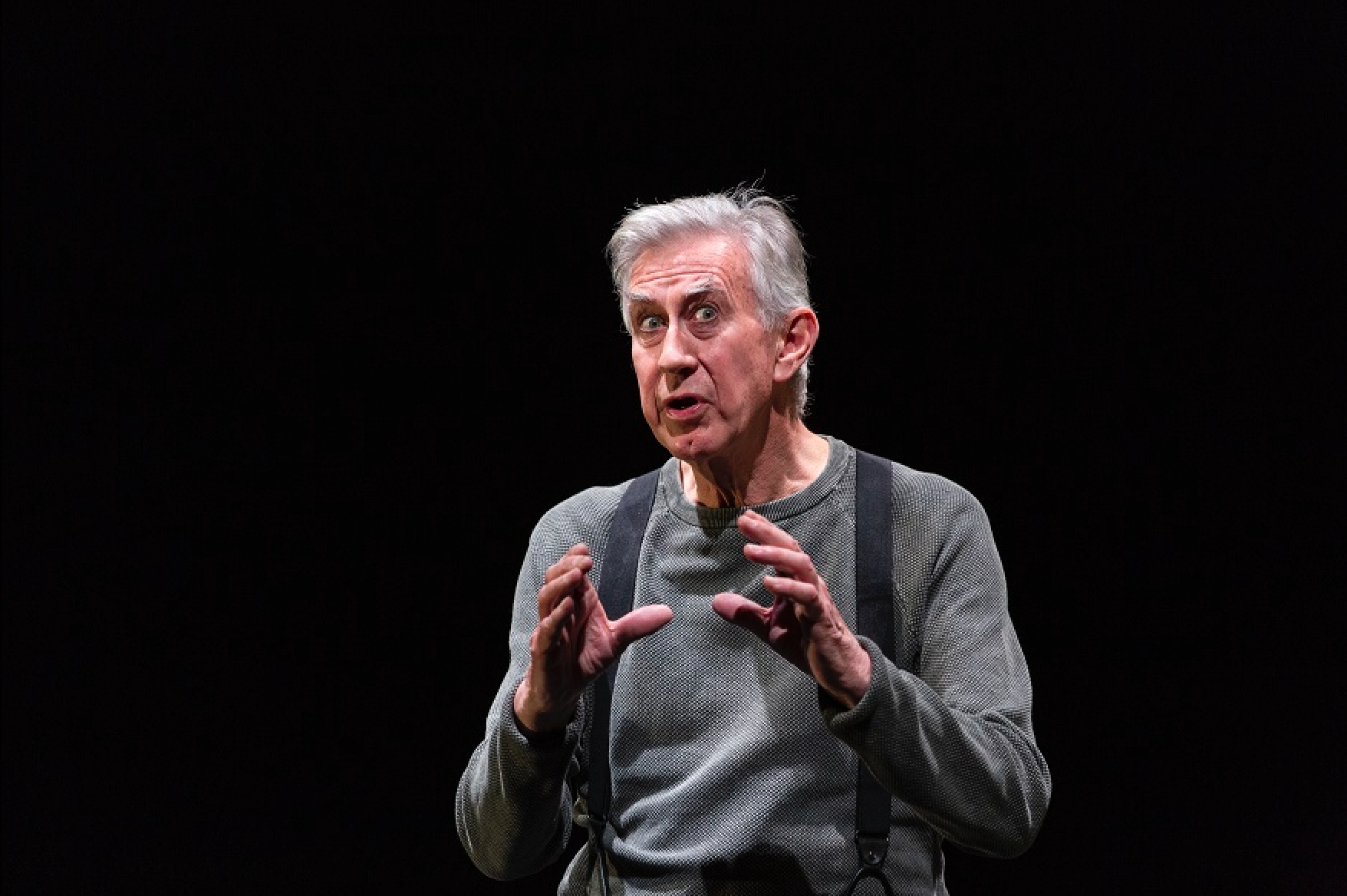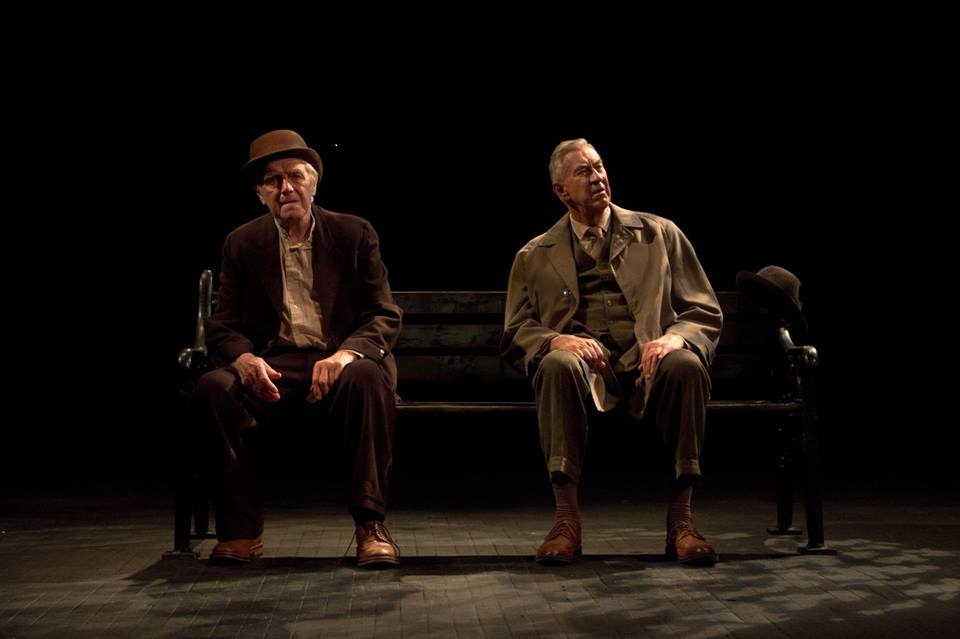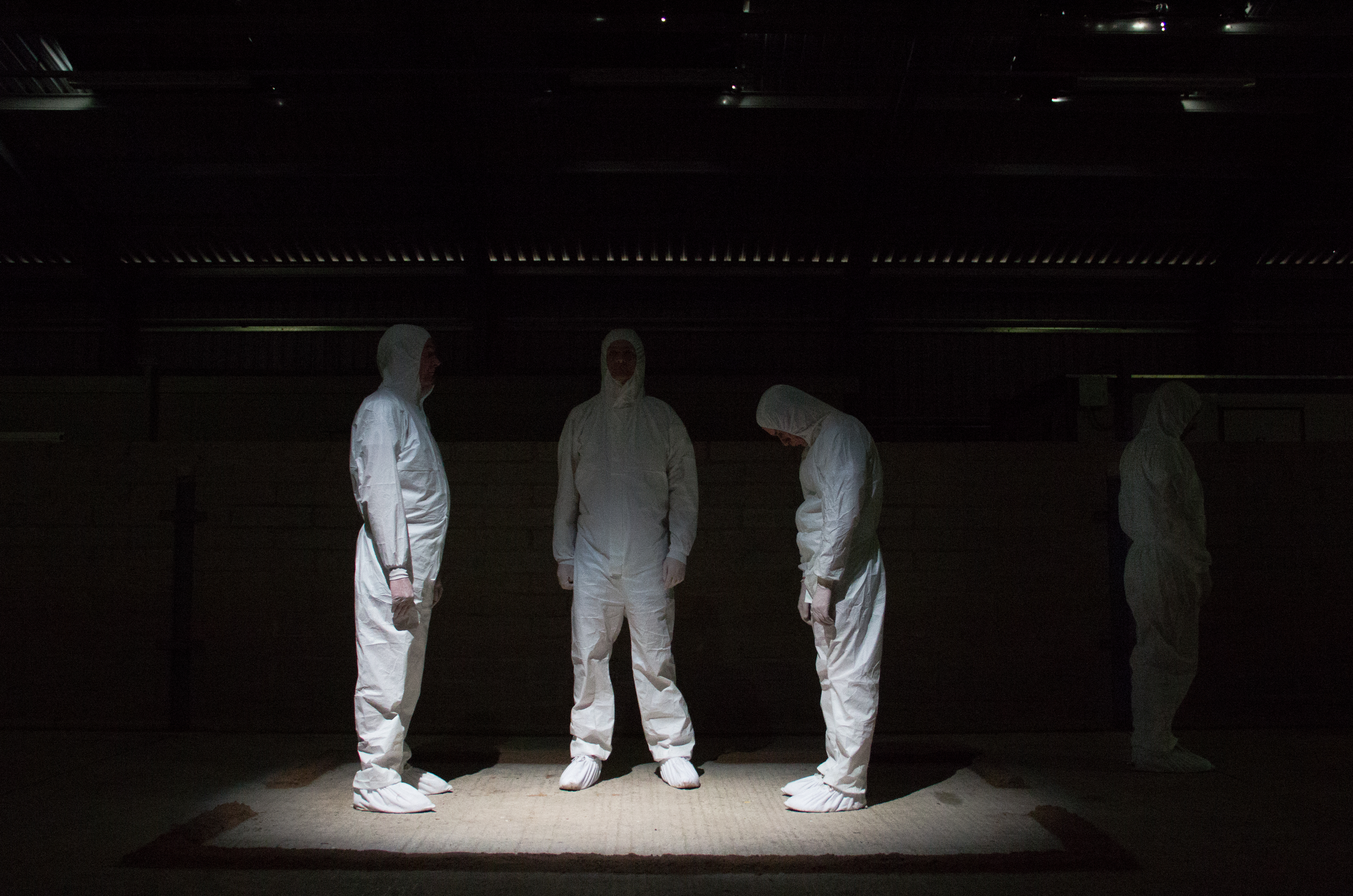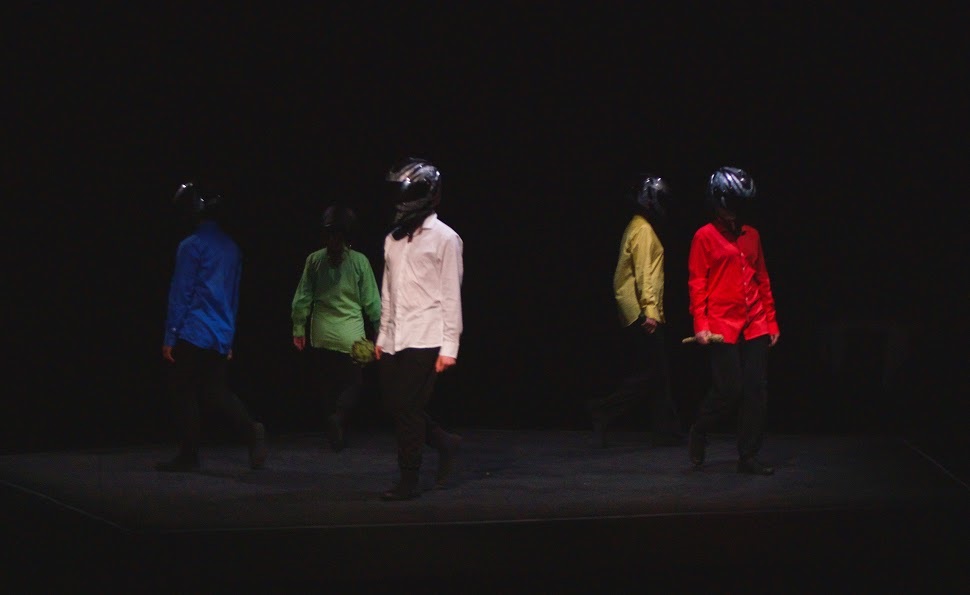“You’re on Earth. There’s no cure for that!” When tackling any of Samuel Beckett’s plays, never mind one of his most emblematic, the challenge for a theatre company is how to leave its own imprint while navigating the author’s exacting directions. As people enter the Project Art Centre’s theatre to take their seats they are greeted by a recorded reading of Endgame’s text and stage directions. The voice is mechanical, almost synthetic. Beckett wanted actors to downplay the emotions in this farcical tale of stagnation and hopelessness. Pan Pan Theatre, however, has other plans. Pan Pan Theatre has scored notable…
-
-
It’s too far to see the expressions or to hear the reactions of the rowers gliding past as they observe twenty figures clad head to toe in black-hooded robes like Medieval monks, walking silently along the riverbank in single file. A penny too, for the thoughts of the two children, and their dog, on the opposing bank of The River Erne. The ‘audience’ in this immersive piece of theatre is moving to the rhythms of Samuel Beckett’s radio play Cascando, headphones under hoods relaying this new interpretation by the award-winning Pan Pan Theatre. Created by Aedin Cosgrove and Gavin Quinn…
-
A broken mind is a terrifying notion. Once gone, so too, has a large slice of the humanity. Isn’t that why we hurry past the insane, with their babbling interior monologue, on the street? It’s a brave playwright who subjects an audience to the mad jabbering of a fractured mind, delivered relentlessly at the speed of thought for a dozen minutes. And in the pitch black, with only the speaker’s mouth illuminated. Samuel Beckett, who was many things, was nothing if not a courageous writer. Beckett’s Not I, a powerful and unsettling portrait of the isolation of madness, returned to…
-
“Nothing. But was that not something?” A stage adaptation of Samuel Beckett’s novel Watt is a fairly mad endeavour. Dense, absurd and peppered with extraordinarily long lists of the possible permutations of ordinary events – comings and goings, goings and comings – Watt is perhaps Beckett’s least celebrated novel. Yet this bleak tale of a non-descript man in domestic service for an indeterminate number of years to Mr. Knott, whom Watt learns nothing about, is laced with wonderfully absurdist humour. It is this comic seam, essentially, that Barry McGovern mines in this one-hour, one-man tour de force, on Dun Laoghaire’s…
-
“We are all born mad. Some remain so.” It’s been a wait alright. Six years, in fact, for the first English presentation of Waiting for Godot at the Happy Days International Enniskillen Beckett Festival. Had Vladimir and Estragon – Samuel Beckett’s beloved vagabonds from his landmark play – had to wait six years in vain for Godot to arrive, they surely would have hanged themselves from that famous tree. Previous editions of the festival have seen renditions in Yiddish, German and French – the language of the original manuscript – and now, like buses, two performances in English by different…
-
One of the great things about the Happy Days Enniskillen Beckett Festival – and there are many – is the opportunity to experience rarely performed Samuel Beckett plays. The Old Tune, for one, doesn’t get too many run outs. Perhaps that’s because it’s comedic portrayal of two elderly men struggling with memory and the onslaught of modernity is considered too light for serious Beckett actors and directors – anxious to sink their teeth into the meatier existential stuff. However, in the hands of nuanced actors Barry McGovern and Eamon Morrisey, and with the subtle guidance of Director Conall Morrison,…
-
Even before the passengers disembark at a secret destination in the Fermanagh countryside, the drama has begun. Franz Schubert’s Winterreise provides the soundtrack en route before the bus stops. The door opens. A woman in green overalls gets on. Megaphone in hand, a bandana masking her face, though oddly, with an opening for the mouth. She walks silently down the aisle, scrutinizing the faces as though searching for the guilty party. Silence descends amongst the passengers. Search over, the woman gets off the bus, as do the passengers, who find themselves in front of a green cattle shed or some…
-
“Imagine you have no objects, well, all I can do with no objects is pick up none of them.” It sounds like a teasing philosophical line from Waiting for Godot but in fact, it’s part of the logic used by Bristol University mathematician Conor Houghton to explain the inner workings of Samuel Beckett’s 1981 play for television, Quad – Beckett’s only play to be inspired by dance. Houghton’s entertaining lecture in Enniskillen’s Ardhowen Theatre is the prelude to a rare performance of Quad, in a joint production by Pan Pan Theatre and Irish Modern Dance Theatre. Houghton’s lecture, however, begins…
-
For all the grim reality associated with much of Samuel Beckett’s work there is also, frequently enough, a silver lining of humour. This duality is perfectly illustrated in From an Abandoned Work, a prose piece from 1954/5 intended as part of novel that never materialized – hence the title. It took new life as a ‘meditation for radio’ and was first broadcast by the BBC in 1957. Here, it is presented in a secret location as a staged reading, something of an experiment by Director Netia Jones, whose production of Stirrings Still featuring Ian McElhinney proved to be one of…
-
One of the most satisfying aspects of the Happy Days Enniskillen International Beckett Festival has been its embrace of Beckett in all his diversity – from his emblematic plays to short dramatic works, poetry, and performances written specifically for radio and television. Eh Joe, Beckett’s first play for television, was written for Jack MacGowaran in 1965, though the version on the big screen in Enniskillen’s Ardhowen Theatre comes from a 1986 adaptation by Director Alan Gilsenan, starring Tom Hickey and Siobhan McKenna (as the Woman’s voice). The stark opening scene sees Joe, a middle-aged man in worn, soiled clothes, sat…

